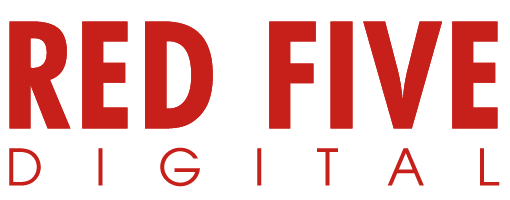In the realm of digital marketing, Pay-Per-Click (PPC) advertising stands as a stalwart strategy for businesses aiming to bolster their online presence and drive conversions. However, as the digital landscape continues to evolve and become increasingly competitive, simply engaging in PPC campaigns is no longer sufficient.
To truly maximize return on investment (ROI), businesses must delve into advanced strategies that go beyond conventional approaches. In this discourse, we’ll explore innovative tactics and methodologies to optimize PPC campaigns for unparalleled success.
Data-Driven Decision Making
At the heart of any successful PPC campaign lies data. Gone are the days of relying solely on intuition or guesswork. Advanced PPC strategies necessitate a deep dive into data analytics to extract actionable insights. By meticulously analyzing metrics such as click-through rates, conversion rates, and cost-per-acquisition, marketers can identify trends, patterns, and opportunities. Leveraging sophisticated analytics tools and techniques empowers businesses to make informed decisions, allocate resources effectively, and refine their campaigns for maximum ROI.
Dynamic Ad Customization
In the dynamic landscape of online advertising, static ads often fall short of capturing the audience’s attention. Advanced PPC strategies advocate for dynamic ad customization, wherein ads are tailored in real time based on user behavior, demographics, and preferences. Utilizing techniques such as dynamic keyword insertion, ad customizers, and remarketing lists for search ads (RLSA), marketers can deliver highly personalized ad experiences that resonate with individual users. This level of customization not only improves click-through rates but also enhances overall campaign performance and ROI.
Ad Extensions and Enhancements
Ad extensions serve as invaluable assets in PPC campaigns, providing additional information and functionality to users beyond the standard ad copy. Advanced strategies involve leveraging ad extensions strategically to enhance visibility, relevance, and engagement. Whether it’s site link extensions, callout extensions, or structured snippets, incorporating these extensions enriches ad content and improves ad rank. Furthermore, embracing emerging ad formats such as image extensions and lead form extensions enables marketers to diversify their approach and capitalize on new opportunities for conversion.
Audience Segmentation and Targeting
One-size-fits-all advertising no longer suffices in today’s hyper-targeted digital landscape. Advanced PPC strategies emphasize the importance of audience segmentation and precise targeting to deliver personalized messaging to distinct audience segments. By segmenting audiences based on demographics, interests, behaviors, and past interactions, marketers can craft tailored ad campaigns that resonate with specific subsets of their target market. Moreover, leveraging advanced targeting capabilities offered by platforms like Google Ads and Facebook Ads enables advertisers to reach niche audiences with laser-focused precision, thereby maximizing ROI.
Conversion Rate Optimization (CRO)
Driving traffic to a website is only half the battle; converting that traffic into tangible results is where the real value lies. Advanced PPC strategies place a strong emphasis on conversion rate optimization (CRO) to ensure that every click translates into meaningful action. By conducting thorough A/B testing, optimizing landing pages, streamlining the conversion funnel, and implementing persuasive design elements, marketers can systematically improve conversion rates and enhance campaign performance. Furthermore, leveraging insights from user behavior analysis and heat mapping tools allows for continuous refinement and optimization of the conversion process, ultimately maximizing ROI.
Budget Allocation and Bid Management
Effective budget allocation and bid management are crucial components of advanced PPC strategies. Instead of adopting a set-it-and-forget-it approach, savvy marketers continuously monitor campaign performance and adjust bidding strategies in real time to maximize ROI. Employing automated bidding algorithms, such as target CPA (Cost Per Acquisition) or target ROAS (Return On Ad Spend), streamlines bid management and optimizes budget allocation based on predefined performance goals. Furthermore, embracing strategies like dayparting and geotargeting enables marketers to allocate budgets more effectively by focusing resources on high-value opportunities and optimizing ad delivery based on time and location.
Cross-Channel Integration
In an omnichannel marketing landscape, siloed approaches are no longer tenable. Advanced PPC strategies advocate for seamless integration with other marketing channels to create a cohesive and synergistic brand experience. By aligning PPC efforts with organic search, social media, email marketing, and other channels, businesses can amplify their reach, reinforce messaging, and engage audiences across multiple touchpoints. Additionally, leveraging cross-channel data integration and attribution modeling provides a comprehensive view of the customer journey, enabling marketers to allocate resources intelligently and optimize campaigns for maximum impact and ROI.
In conclusion, maximizing ROI in PPC campaigns requires a multifaceted approach that goes beyond traditional tactics.
By embracing advanced strategies such as data-driven decision-making, dynamic ad customization, ad extensions, audience segmentation, conversion rate optimization, budget allocation, bid management, and cross-channel integration, businesses can unlock the full potential of their PPC campaigns.
In the ever-evolving digital landscape, staying ahead of the curve and embracing innovation is essential for achieving sustained success and driving measurable results.


